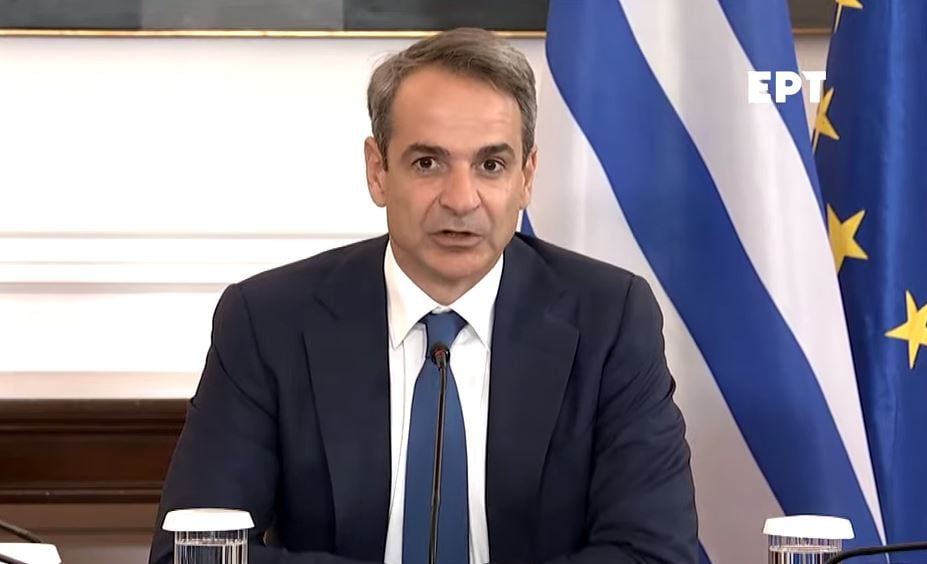Samaras targets end to solidarity tax
The scrapping or reduction of the solidarity tax and possibly the lowering of value-added tax (VAT) are at the core of Prime Minister Antonis Samaras’s strategy for the months ahead, which will also determine if Greece will go to early general elections.

The scrapping or reduction of the solidarity tax and possibly the lowering of value-added tax (VAT) are at the core of Prime Minister Antonis Samaras’s strategy for the months ahead, which will also determine if Greece will go to early general elections.
The scrapping or reduction of the solidarity tax and possibly the lowering of value-added tax (VAT) are at the core of Prime Minister Antonis Samaras’s strategy for the months ahead, which will also determine if Greece will go to early general elections.
Sources told Kathimerini that Samaras would like to reduce or abolish the solidarity tax, an extraordinary levy on income introduced at the beginning of 2011, as of the beginning of 2015. If possible he would also like to lower VAT. Samaras would like to announce these measures at the Thessaloniki International Fair in September and then implement them from January 1.
The prime minister believes that the lightening of the tax burden on Greeks, particularly the middle classes, will be a key factor in determining support for the government as it will also signal the start of emergency fiscal measures introduced during the crisis being gradually lifted. Scrapping the solidarity tax would also prevent the government having to face a tricky vote in Parliament next year. The levy is due to expire at the end of this year and any plans to keep it in place would need MPs’ approval.
If the government can avoid renewing the solidarity tax, it is likely that Samaras will seek a confidence vote in Parliament. This could force independent MPs, as well as those within the weakened Democratic Left (DIMAR) and Independent Greeks to pick sides ahead of SYRIZA attempting to force national elections over the nomination for the successor to President Karolos Papoulias, whose tenure ends in February.
The government’s ability to scrap the solidarity tax depends to a large extent on how debt relief talks with the eurozone progress later this year and what view the troika takes on Greece’s public finances at that time. The International Monetary Fund approved on Friday the release of another 3.4-billion-euro loan for Greece but also stressed that the country’s fiscal adjustment needs to continue.
“Additional fiscal adjustment is necessary to ensure debt sustainability, through durable, high-quality measures, while strengthening the social safety net,” said Naoyuki Shinohara, the IMF’s deputy managing director. “It is essential that the authorities continue to improve tax collection, combat evasion and strengthen expenditure control.”
Shinohara also expressed concern about some weaknesses in the Greek economy. “Despite significant wage adjustment, export performance remains comparatively weak. The redoubling of efforts to liberalize product and service markets is therefore welcome,” he said.
“Addressing the very high level of nonperforming loans remains an important priority,” added the IMF official. “While there is no acute stability risk, it is critical for the economic recovery that banks be adequately capitalized upfront to recognize losses on the basis of realistic assumptions about loan recovery.”
ολες οι ειδησεις
- Χαμός μεταξύ Αντώναρου – Στέφου στην εκπομπή One Talk: «Είστε ακροδεξιός» – «Γίνατε Συριζαίος της πλάκας τώρα στα γεράματα»
- Γάζα: Άγριο λιντσάρισμα σε πατέρα ομήρου της Χαμάς (Πολύ σκληρό βίντεο)
- Δημοσκόπηση Metron Analysis: Αυτές είναι οι «κίτρινες κάρτες» για την κυβέρνηση – Σαρώνουν εγκληματικότητα και διαφθορά
- Europa Conference League: Δεν τα κατάφερε ο ΠΑΟΚ – Γνώρισε δεύτερη ήττα στην Τούμπα από την Μπριζ και είπε αντίο στη διοργάνωση (Βίντεο)
Ακολουθήστε το Newpost.gr στο Google News και μάθετε πρώτοι όλες τις ειδήσεις
Δείτε όλες τις τελευταίες Ειδήσεις από την Ελλάδα και τον Κόσμο, στο Newpost.gr








